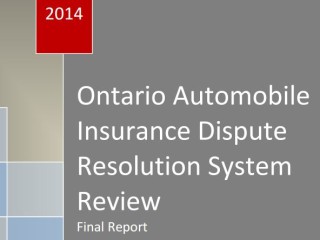Guest Author: Christopher Obagi, Connolly Obagi LLP
A Call to the Bench for New Ways to Tackle Old Problems
As stated by Willard Z. Estey, former judge of the Supreme Court of Canada, “disputes, unlike wine, do not improve by aging.” Indeed, delay in litigation is an old problem that has plagued our legal system for decades. Its latest victims are the Plaintiffs in the ongoing case of Sabanadze et al v. Joseph et al.
The Plaintiffs are individuals who were injured after a Greyhound bus they were riding in as passengers ploughed into the rear of a tanker truck and became entangled in a multi-vehicle collision on highway 417, in the Province of Ontario, on January 27, 2014. The litigation involved as much as twenty-six (26) defendants at one time.
More than 5½ years have passed since this action was commenced on January 27, 2016. More than 7½ years have passed since the date of the accident on January 27, 2014. The Plaintiffs moved the litigation as quickly as possible. The parties attended four weeks of examinations for discovery, three case conferences, two days of mediation and one trial management conference. The trial record was passed in July of 2020 with no set trial date as of the date of the motion.
The Plaintiffs sought to expedite the litigation by having the Defendants’ jury notice struck and the trial be heard by a judge alone. The Plaintiffs also proposed that the trial be heard in three-week tranches, a method of trial which would ensure timely justice between the parties and avoid the delays caused by the COVID-19 pandemic.
The Plaintiffs argued that for the stakeholders involved in the civil justice system in Ottawa, it would be a fallacy to assume that the system will return to “normal” without further affirmative action in finding new ways, or modifying old ways, in tackling this crisis. In the current state, civil jury trials of over three weeks will likely only be heard, if at all, several years after the trial record is passed. Without change, this norm will contribute to the culture of complacency criticized by the Supreme Court of Canada in Hryniak v. Mauldin, 2014 SCC 7. This culture of complacency and tolerance for delay further compounds this crisis, as the Ontario Court of Appeal discussed extensively in Louis v. Poitras,2021 ONCA 49. Heeding the example of the Ottawa motion judges in Louis and Cowley v. Skyjack Inc., 2021 ONSC 1303, the Plaintiffs submitted that new ways must be explored to hearing cases on their merits to enable efficient and expeditious justice.
In Ottawa, a judge alone trial, proceeding in three (3) week tranches, could commence as early as late winter and early spring 2022. The Plaintiffs argued that the opportunity to start the trial in the next six (6) months reduces the immense prejudice resulting from delays in the current system and would serve the interests of justice. Over 95% of cases settle at or before the commencement of trial. Getting and securing a trial date, even if only for the first 3 week tranche, may be precisely what is needed to settle a longstanding case, reduce the backlog or, alternatively, get a case tried as expeditiously as possible.
The Defendants argued that the motion was premature given that there was a pre-trial scheduled on December 8, 2021 which had yet to be heard. The Defendants argued that the pre-trial judge, not a motion judge, would be best suited to discuss the proper length and method of hearing.
The motion judge agreed with the Defendants that the motion was premature. She dismissed the motion without prejudice to the Plaintiffs’ right to seek a new date for their motion to strike the jury notice after the pre-trial. The motion judge concludes that although she “applaud[s] the Plaintiffs’ desire to move forward as quickly as possible” and she does not discount the idea of scheduling a trial in tranches, the motion was simply too early to be decided on its merits. She stated that there was no way to evaluate a request for trial by tranches without insight into what evidence will be led, which are issues to be canvassed at the pre-trial conference on December 8, 2021.
This area of law is ripe for development. Plaintiffs’ counsel should continue to think outside of the box for innovative ways to bring these cases to trial. While the motion was not successful, there are some encouraging comments in the decision which can be used in future cases to push for more changes in the manner in which trials are currently being scheduled.













